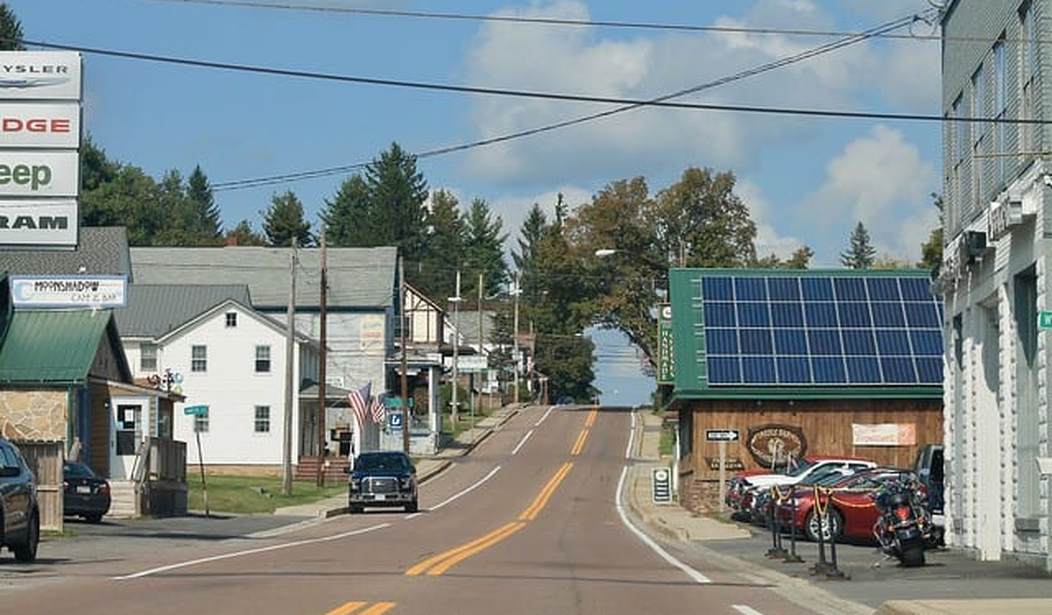ACCIDENT, Maryland — Hours before the festivities began, generations of families were lining up along U.S. Route 219, which is Main Street in this Garrett County town. Armed with coolers of ice, folding chairs and old blankets, and dressed in colorful patriotic clothing, they came to watch the 100-year-old homecoming parade that celebrates their community and the bold beginning of our independence.
Anticipation, that sweet pang of excitement and eagerness that’s becoming less common in an age of instant gratification, was tangible as nostalgia swept the old and novelty thrilled the young.
A meaningful silence filled the crowd as the American Legion color guard of veterans spanning World War II to today’s conflicts crested Route 219 and made their way along Main Street. A wave of applause and salutes greeted the men who made the sacrifice to serve first their country in their youth and then their community in their maturity.
Following them were scores of floats, fire equipment, local bands, scout troops, church groups, the Rotary Club, beauty pageant winners, plenty of livestock and the all-important volunteers, who tossed out penny candy to the gleeful young children.
Accident, Maryland, is not much different from many small towns that dot our countryside. It’s got an odd name (yes, based on an accident), great trout fishing along the creek named after a bear, and just enough small businesses to provide a family’s essentials (plus any sweet tooth, pizza craving or appetite for fresh, locally made cheese).
This isn’t the story of rural life you’ll read in much of the media. “I spent a lot of my vacation driving around rural areas, through NC, KY, and TN,” wrote Vox.com blogger Dave Roberts. “My impression: horrible land use, bland, ticky-tacky strip-mall architecture, & economic decay. I feel compassion for those people but I have zero time for romanticism about US rural life.”
But Mike Koch and Pablo Solanet don’t romanticize about their lives in Accident. The married couple are Washington, D.C., expats. Koch worked in housing finance for 22 years, and Solanet was a sought-after Argentine-trained chef. They gradually eased out of Beltway life beginning in 2002, permanently departing a few years ago.
FireFly Farms, their bustling cheese business, is lined with paradegoers on the day of the homecoming. Despite their exquisite, locally made goat cheeses appearing on the coveted shelves of Whole Foods, Wegmans and Zabar’s and served in dishes in some of the finest restaurants in New York and Washington, the men remain grounded and committed to their rural enterprise.
Koch said: “When we first started the business, Pablo was the original cheesemaker, the original herd manager. He really put his heart and soul, while I continued to work because, as you probably know, starting a farm-based business, the money just doesn’t roll in. So, it was necessary to make sure we could sustain ourselves.”
They are also deeply committed to their rural community. Koch said: “On election night 2016, we stopped watching the national news, and Pablo and I made the decision to focus on our community: Do we know the county commissioners? Do we go to the chamber of commerce annual membership dinner? Do we know about what’s hot in Garrett County politics and what people would like to see in terms of improvements in recycling? Do we know Mayor Carlson of Accident, Maryland? Do we know Ruth Ann who runs town hall?”
That additional investment in community (outside of working with six local farms for their fresh goat milk and employing over 20 locals) has been, in a word, remarkable.
Koch dismisses the typical stereotypes hurled at rural people, saying: “It’s no secret that Pablo and I are married and we’re gay. It’s never brought up. What they care about is: Are you contributing to the community? Are you creating jobs? Are you behaving like a responsible citizen? And the red/blue stuff? Well, people don’t obsess about that in the way society assumes they do.”
With the exception of a few years in Florida, Glen Maust has called Accident home. The hardworking entrepreneur who has both a construction company and a 25-unit apartment building fulfilled a dream last year when he opened the Rolling Pin Bakery with his wife.
On doughnut day, which is three days a week, the aroma tempts the pedestrians to dive into the bakers’ family legacy; she is Mennonite and is using the same recipe her grandmother taught her as a child. There are also sandwiches, gobs, cookies, muffins and anything else you need to satisfy a sugary craving.
The father of six, Maust employs 15 locals including his son. He knows the challenges of rural life and embraces them: “Our town has had its up and downs, but we are definitely a prosperous, growing little town, but not so much that we’re not in danger of getting a Walmart anytime soon.”
It is a pretty open-minded town, said Maust: “I would say that we still would be a fairly conservative town, and most conservatives are open-minded. Certainly some aren’t, but then there’s some liberals that are so open-minded that their brains fall out.”
“I think maybe the town of Accident is kind of a happy medium,” he said.
Salena Zito is a CNN political analyst, and a staff reporter and columnist for the Washington Examiner. She reaches the Everyman and Everywoman through shoe-leather journalism, traveling from Main Street to the beltway and all places in between. To find out more about Salena and read her past columns, please visit the Creators Syndicate webpage at www.creators.com.
COPYRIGHT 2019
Advertisement









Join the conversation as a VIP Member